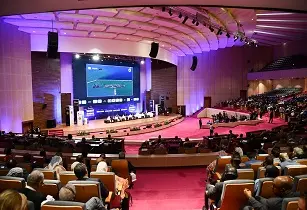Global energy major Kosmos Energy announced that the company is seeking an equal partnership structure for the Yakaar-Teranga natural gas project during the recent MSGBC Oil, Gas & Power 2023 conference
Having recently assumed operatorship from bp and in a panel discussion titled, The Balancing Act: Hydrocarbons and the Energy Transition, the company shared that it is committed to working with Mauritania to unlock the full benefits of the project for the local economy.
The announcement was made by Khady Ndiaye, vice president and Senegal country manager, Kosmos Energy, who said, “For Yakaar-Teranga, we are thinking about a partnership whereby all partners have equal participation in the project, with Petrosen being the party with the highest shares. The idea is to promote the new part of partnership where the National Oil Company (NOC) will be able to showcase its capabilities and develop new skills.”
The panel discussion featured how the monetisation of oil and gas resources stands to play a central part in strengthening the region’s capacity to transition to a cleaner energy future. Speakers underscored the region’s desire to industrialise and develop, promoting the various projects underway that promise new opportunities for universal access and economic growth.
For The Gambia, a market which is vastly underexplored, Cany Jobe, director of Exploration and Production at the Gambia National Petroleum Corporation, explained that they are “doing all we can both above and below ground to make exploration more effective in The Gambia. We have tweaked our fiscal terms to implement a sliding scale royalty. We have also reverted back to a direct negotiation strategy and hope this will encourage investors and partners to come to the table.”
Similarly, Guinea-Conakry has implemented measures to attract investment. The country established the NOC, SONAP, in 2021 and is looking for partners to conduct exploration.
“The transitional government aims to highlight all natural resources, leading to the creation of the NOC, SONAP. We have acquired 2D and 3D data technologies. With these advancements and investments, we may catch up with the delay [in exploration] in two to three years,” stated Mohamed Bangoura, national director of Hydrocarbons, Ministry of Energy, Hydraulics and Hydrocarbons, Guinea-Conakry.
Following the discovery of major oil and gas deposits in the offshore MSGBC waters, countries to the likes of Mauritania and Senegal kickstarted major projects under efforts to develop and monetize resources. The 2.3 million-ton-per-annum Greater Tortue Ahemyim project and the 100,000 barrel-per-day Sangomar oilfield development are getting ready for first production in 2024, with a strong slate of other projects gradually progressing. One of the most anticipated of these is the BirAllah development in Mauritania, which targets gas for domestic utilisation.
Moustapha Bechir, general director of Hydrocarbons at Mauritania’s Ministry of Petroleum, Mines and Energy, explained that the country “is in the process of preparing for Final Investment Destination [for BirAllah] and plans to produce gas by 2030.” He added that the Ministry is engaging with the Joint Venture partners on “how we can meet this target and design the project for the domestic market and domestic needs, and ensure that we can make this project compete in the current market.”
While the region is gearing up for an abundant supply of domestic oil and gas, climate change is causing growing concerns for regional countries, underscoring the need to implement low-carbon solutions. As such, focus has shifted towards decarbonisation as first production nears. Countries across the region are adoption strategies to facilitate a transition while prioritising the needs of the population.
Papa Samba Ba, director of Hydrocarbons, Ministry of Petroleum and Energies, Senegal, said, “Our country has developed a balanced transition strategy, leveraging extractive resources, complemented by an increase in our renewable resources. This enables us to address various challenges and be present at the forefront of these issues.”








